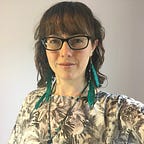Does storytelling affect our understanding of science?
Stories are great way to convey information while also being entertaining. In contrast, science can often seem quite dull as experiments must follow a controlled procedure which doesn’t leave a lot of room for all of the entertaining imagery and emotion that a good story invokes. In order to make the science meaningful to people who weren’t directly involved in the experiments, reports and new stories often find a way of telling a story. Sometimes, this can change how we take that information in.
Scientists share their experiments in peer-reviewed journals. Scientific findings can be defined as the conclusion from the study, or controlled experiment, that involves the interpretation of data. Data are information presented in a structured way such as a graph. One example of a controlled experiment is the way in which calories in food are determined. A calorie is the amount of energy required to raise the temperature of one gram water by one degree Celsius. To find out how many calories are in food, that food item is burned. I remember doing this experiment in school and jelly babies are often used. Funnily enough, food packaging usually reports the amount of energy in the food as kcal (kilocalories) i.e. one thousand calories but usually just talk about calories in conversation. This can make things a bit confusing given that we’re often advised to…
